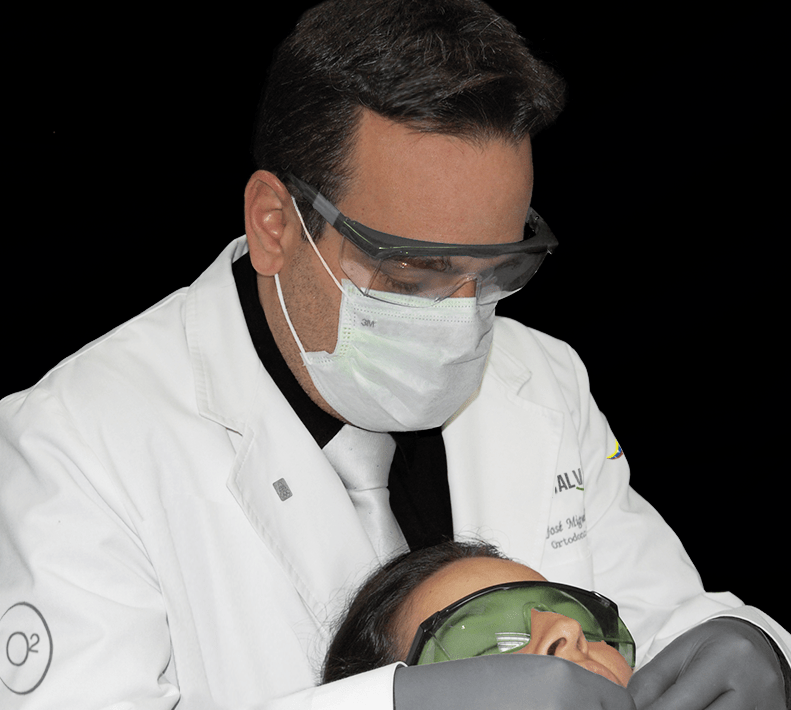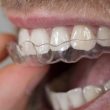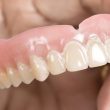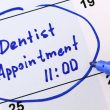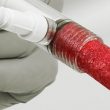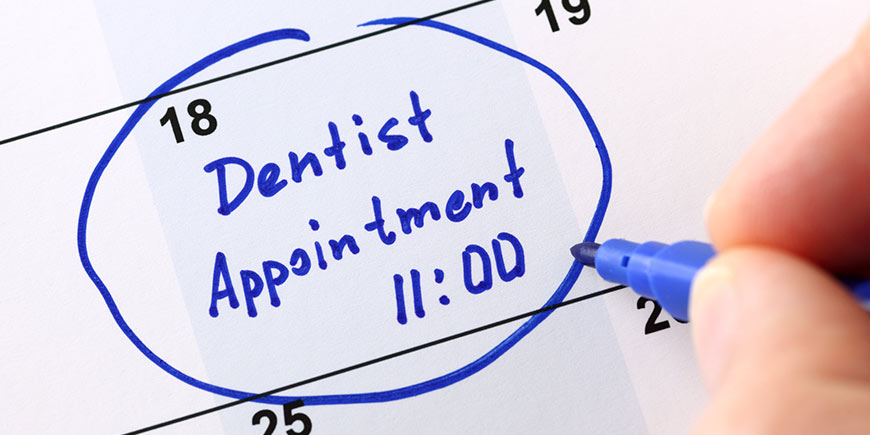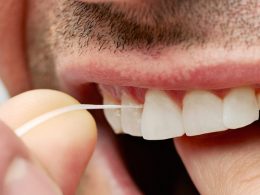Table of Contents
A regular dental check-up is vital when it comes to keeping your gums and teeth healthy. In order to ensure this, you need to visit your Dentist regularly, say once for every six months, or sooner, as specified by him. Most people do not like to employ a preventive approach to health care and only visit medical practitioners when things go wrong.
However, this is a dangerous way to deal with your oral health, as the food we eat every day leaves our teeth and gums exposed to bacteria that develop from the breakdown of waste that gets stuck in the mouth. If you skip regular dental checkups for whatever reason, it is important to be aware of the associated risks. Mainly paying more money later for a corrective procedure.
Read below to find out why it is essential to see a Dentist regularly!
Dental Clean-Up
Although you might feel that your cleaning techniques are adequate and your teeth feel smooth and clean, there are hidden and difficult to reach areas that are ideal accumulation points for bacteria. Inadequate cleaning of these areas will lead to gum disease or periodontitis, which could ultimately result in tooth loss.
Only a thorough and professional dental cleaning can get to these difficult to reach areas. Regular dental clean-ups remove all plaque and tartar. The importance of regular dental cleaning for the prevention of gum disease and other associated problems cannot be over-emphasized.
Prevention and/or Early Diagnosis of Oral Cancer
Preventing tobacco and alcohol use and increasing the consumption of fruits and vegetables can potentially prevent the vast majority of oral cancers. However, when primary prevention fails, early detection through routine clinical examinations and relatively conservative treatment can prevent the vast majority of deaths.
Periodic visual inspection of the oral cavity is extremely important due to its viability, efficacy, safety, acceptability, profitability and precision in detecting precancerous lesions and oral cancer, considerably reducing morbidity and mortality from this type of pathology.
This clinical inspection involves a systematic visual and physical examination of the intraoral mucosa under bright light, to detect signs of potentially malignant oral disorders, as well as early oral cancer; followed by careful inspection and digital palpation of the neck for enlarged lymph nodes.
Detection of Cavities
Thus, signs of caries on the surface of each tooth are ruled out. Your Dentist will likely scratch your teeth with a dental instrument, called an explorer, to detect cavities (deteriorated enamel feels softer when felt with the instrument, compared to healthy enamel).
Your Dentist will also rule out problems with old fillings, braces, bridges, dentures, crowns or other restorations.
Detection of Periodontal Disease
The gums are very sensitive and plaque and tartar buildup can significantly affect them. Not only does this lead to cavities, it can also cause problems around the teeth. This infection is often referred to as gingivitis and worsens as the tissue that holds the teeth in place weakens.
Gingivitis is a mild form of gum disease and when it worsens it causes inflammation, bleeding and pain in the mouth. This infection not only affects the gums, but destroys the bones that hold the teeth in place. This can lead to tooth loosening and can cause many parts to fall out. Once gum disease reaches this point, the practitioner will need to take radical steps to treat the condition.
Gum disease can affect anyone as it is caused by the accumulation of food debris in the mouth and no one is completely safe from it. Going to a Dentist for a check-up can help detect this disease while it is still in its early stages. The best way to prevent gingivitis and gum disease is to exercise proper oral care and to always keep your teeth and mouth clean.
Monitoring Bad Habits
Some habits are detrimental to our oral health. The funny thing is that we may not realize the impact that these habits can have on the teeth. Prime examples include ice picking, nail biting, teeth grinding, eating candy and smoking; among others. Most of these activities are habits that are practiced on a daily basis, and you will not know if they are affecting your oral health without going to a check-up.
A Dentist can check for any damage to your teeth when you go for a check-up and advice you on what to do and what habits to avoid. It is good to be informed about some of these destructive habits that you might have been oblivious to, so that you can tweak your lifestyle and avoid damaging your teeth further.
Discard of Hidden Pathologies
Most of the problems that affect our teeth are visible on the surface, and you can even notice them just by looking in the mirror. An important advantage of visiting a Dentist regularly, is being able to have your jaws and teeth X-rayed so that it can reveal what is going on below the surfaces.
Some common problems include retained teeth, such as wisdom teeth, which can be painful when they erupt. They could also expose lesions, cysts and tumors in the jaws. All of these things are impossible to detect without an X-ray and could be the cause of other problems with your teeth.
It Is Good for Your Overall Health
There is a strong connection between good oral health and a person’s well-being. Make no mistake about it that your oral health does not affect other elements of your overall health. The organs of your body are connected, and a problem in one part can easily lead to problems in another. Visiting a Dentist regularly will not only keep your mouth healthy, but it will also reduce the risk of other serious health problems. You will live a healthier and happier life.
A dental check-up is good for you, and as we said, it has two parts; the scan and the cleaning. The inspection phase consists of observing the state of the teeth and gums; in addition to the tongue, throat, face and neck. The Dentist will also professionally clean your teeth and remove tartar that cannot be dislodged with regular brushing.
Oral health is about taking care of your teeth and gums between regular visits, and brushing at least twice a day; preferably three. Use mouthwash to control bacteria and always keep your breath fresh.
Finding a reliable Dentist who offers you the best services is vitally important when it comes to regular oral health check-ups.
How Often Should a Dental Exam Be Performed?
For the average dental patient, one visit every six months is the usual recommendation. However, this depends on a number of factors, and only your Dentist will be able to tell you how often to do it. For low-risk individuals, who maintain a good daily oral hygiene regimen, an annual visit may be sufficient.
Those with underlying medical conditions might need to go more often, particularly if they want to maintain a preventive dental healthcare program.
Some conditions that could cause you to need more frequent attention from your Dentist are:
- Smoking.
- Pregnancy.
- Diabetes.
- Periodontal (gum) Disease.
Anyone with a compromised immune system resulting from chronic illness or infection, or a tendency to get cavities or plaque build-up more easily, might be advised to schedule quarterly visits if possible.
What Bi-Annual Exams Cover?
During each dental checkup, your Dentist will examine your mouth with a dental mirror for signs of cavities, plaque and tartar buildup. He (or she) may take X-rays to identify any cavities between your teeth, do a careful inspection of your gums and measure how deep the gum grooves are around your teeth.
In addition, he will examine your tongue, throat, face and neck for signs of swelling or redness, and may recommend an oral cancer screening test. This is a simple process that requires you to swish a liquid in your mouth for a few seconds, after which your cheeks and gums are checked under a special light. If your Dentist detects any suspicious sign, he will discuss it with you.
Small cavities or other minor problems can usually be addressed during the same visit, but for any major work, such as extractions, root canals or tooth replacement; you will have to schedule another appointment.
The Dentist or Periodontist will do a thorough scaling and cleaning with special tools to remove tartar, followed by a dental polishing. He may also recommend that you undergo fluoride treatment, although it is usually not necessary every 6 months.
“Going Regularly to the Dentist, Is the Only Way to Guarantee the Health of Teeth and Gums, and at the Same Time, Save Large Amounts of Money”.
DENTAL TIP
Additional Benefits of Regular Check-Ups and Cleanings
While it may seem inconvenient to have to pay for dental checkups multiple times a year, the benefits far outweigh the disadvantages. Preventing cavities and other oral problems for sure will be much cheaper than paying for restorative treatments. Even, when the patient has major rehabilitations in the mouth with root canal treatments, implants, crowns and bridges; regular or periodic care will extend their longevity.
A study by the Canadian Dental Association shows a significant increase in dental caries in the last 40 years, despite a good general level of oral health in that country. Do not become just another negative statistic, schedule regular exams and cleanings for you and your family, and make sure that the only dental care you need is preventive.
Save Thousands by Getting Dental Work in Venezuela!
On average, dental work in Venezuela is about a third the price of what you are used to paying at home, without a drop in the quality of care. All the process takes is just a little research and a few more logistics. In the “Dental Tourism” category of this same blog we describe all the considerations necessary to get dental care done in Venezuela.
The first thing you want to do is get a quote for the dental work you need done by our team. Most of the time, simply sending a few photos and X-rays to us will do just fine. The online consultation will provide a strong idea of what will need to be done, and will be able to provide you with a pretty close cost estimate for the dental procedures.
Through our WhatsApp or Email you can ask all the necessary questions about the proposed treatment and its details. DENTAL VIP has specially trained personnel for this function.
Once the quote is approved, you must indicate the date of your trip to corroborate the treatment viability in the selected period, ensure your accommodation and proceed with the purchase of air tickets.
Congrats! Now you are on your way to saving thousands by getting dental work in Venezuela.
